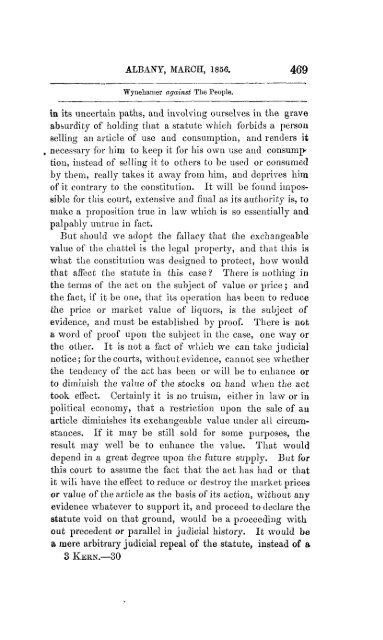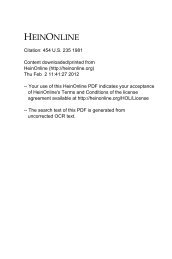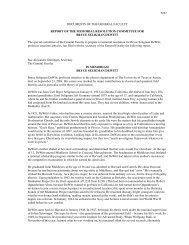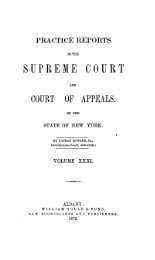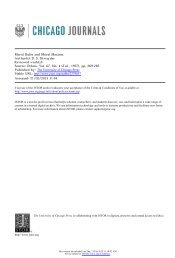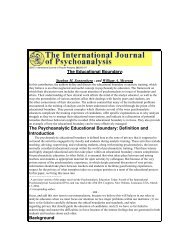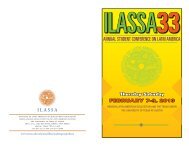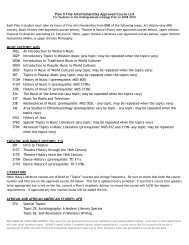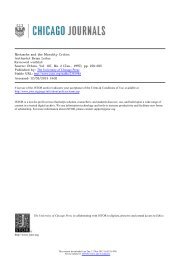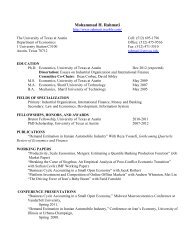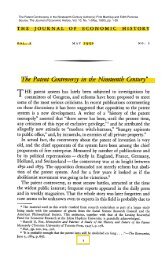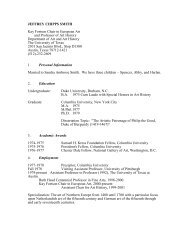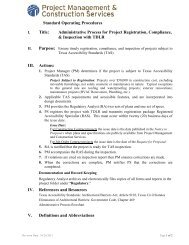Wynehamer v People.pdf - The University of Texas at Austin
Wynehamer v People.pdf - The University of Texas at Austin
Wynehamer v People.pdf - The University of Texas at Austin
Create successful ePaper yourself
Turn your PDF publications into a flip-book with our unique Google optimized e-Paper software.
ALBANY, MARCH, 1856. 469<strong>Wynehamer</strong> against <strong>The</strong> <strong>People</strong>.in its uncertain p<strong>at</strong>hs, and involving ourselves in the graveabsurdity <strong>of</strong> holding th<strong>at</strong> a st<strong>at</strong>ute which forbids a personselling an article <strong>of</strong> use and consumption, and renders it, necessary for him to keep it for his own use and consump'tion, instead <strong>of</strong> selling it to others to be used or consumedby them, really takes it away from him, and deprives him<strong>of</strong> it contrary to the constitution. It will be found impossiblefor this court, extensive and final as its authority is, tomake a proposition true in law which is so essentially andpalpably untrue in fact.But should we adopt the fallacy th<strong>at</strong> the exchangeablevalue <strong>of</strong> the ch<strong>at</strong>tel is the legal property, and th<strong>at</strong> this iswh<strong>at</strong> the constitution was designed to protect, how wouldth<strong>at</strong> affect the st<strong>at</strong>ute in this case ? <strong>The</strong>re is nothing inthe terms <strong>of</strong> the act on the subject <strong>of</strong> value or price; andthe fact, if it be one, th<strong>at</strong> its oper<strong>at</strong>ion has been to reducethe price or market value <strong>of</strong> liquors, is the subject <strong>of</strong>evidence, and must be established by pro<strong>of</strong>. <strong>The</strong>re is nota word <strong>of</strong> pro<strong>of</strong> upon the subject in the case, one way orthe other. It is not a fact <strong>of</strong> which we can take judicialnotice; for the courts, without evidence, cannot see whetherthe tendency <strong>of</strong> the act has been or will be to enhance orto diminish the value <strong>of</strong> the stocks on hand when the acttook effect. Certainly it is no truism, either in law or inpolitical economy, th<strong>at</strong> a restriction upon the sale <strong>of</strong> auarticle diminishes its exchangeable value under all circumstances.If it may be still sold for some purposes, theresult may well be to enhance the value. Th<strong>at</strong> woulddepend in a gre<strong>at</strong> degree upon the future supply. But forthis court to assume the fact th<strong>at</strong> the act has had or th<strong>at</strong>it will have the effect to reduce or destroy the market pricesor value <strong>of</strong> the article as the basis <strong>of</strong> its action, without anyevidence wh<strong>at</strong>ever to support it, and proceed to declare thest<strong>at</strong>ute void on th<strong>at</strong> ground, would be a proceeding without precedent or parallel in judicial history. It would bea mere arbitrary judicial repeal <strong>of</strong> the st<strong>at</strong>ute, instead <strong>of</strong> aS KERN.—30


